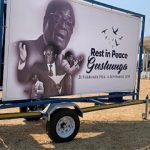Freedom of Association
The right to freedom of association is guaranteed in Constitution and is currently regulated through legislation such as the Private Voluntary Organisations Act (PVOA) and the Deeds Registries Act.
Registration of associations, including NGOs, is required by the PVOA and is done through the Department of Social Welfare under the Ministry of Public Service Labour and Social Welfare. I am informed that the registration procedure can be onerous, lengthy and complex in nature requiring, through the PVO registration form, a significant amount of detailed information of the association, and additional documents can be requested at the discretion of the Registrar of PVOs.
Applicant associations are required to provide a proof of public notice in national papers in order to call for objections, which should be lodged with the Registrar. If an applying association has been denied registration due to their political stance and support or under vague circumstances such as “appears unable to abide by the objectives”, no system for challenging the decision is in place.
Foreign funding is strictly regulated and when allowed is met with hostile government rhetoric. International organisations intending to operate in the country are required to conclude a memorandum of understanding or cooperation with Government. The PVOA stipulates severe penalties for any unregistered organisations that continue to operate in the country.
In addition to the limitations in setting up an association, the PVOA grants wide discretionary powers to the Minister who can interfere in the internal governance of the association, if she or he believes that a PVO has failed to comply with its objectives or constitution, has been subject to maladministration, or has engaged in illegal activities, or that “it is necessary or desirable to do so in the public interest” or any other ground in terms of Section 21 of the PVOA. Another barrier to the activities of associations relates to the authority of the Minister to inspect “any aspect of the affairs or activities” of any an association.
Considering the registration limitations and challenges provided in the PVOA, many NGOs have resorted to registering themselves as Trusts under the Deeds Registries Act.
Regardless of the law that governs their activities, I have been informed that NGOs are under surveillance in law and in practice. On the latter, I have heard repeatedly accounts of NGOs who need to submit letters of notification to the police informing of their intent to hold meetings in public or even privately.
In particular, I have been able to perceive this toxic environment during my meetings with community based organizations from the Marange region and in Arda Transau whose activities are related to advocacy for transparent, accountable and fair distribution of benefits within the communities in the context of natural resource exploitation.
In both places, I could feel the level of pressure that communities feel because of their activities related to their own well-being and development. The level of isolation in which these communities attempt to operate, which in the case of the Marange communities is even physical, confirms a strong policy of control and intimidation.
In order to reverse this situation, I believe that one of the first steps that the government should take is to carry out genuine consultations with all affected communities, particularly with those that have been relocated. Through the practical guidelines for “Civil society participation in the implementation of the 2030 Agenda for Sustainable Development” (A/HRC/41/41/Add.2) and by aligning to the Guiding Principles on Business and Human Rights, a more constructive dialogue can be instituted within the Marange communities and with others in similar situations.
I was also able to understand how activism is immediately related to a political stand even when advocating for the achievement of economic, social and cultural rights. A training abroad can result in arrests upon return to the country, as it occurred earlier this year when activists were detained at the Harare airport and charged with subversion because of their participation in a workshop on peaceful resistance.
I have also been made to understand from my discussions that NGOs working on development and humanitarian issues have been accused of being partisan and based on those perceptions required to sign MOUs with local authorities or they would not be able to implement their projects or activities in a particular province. In the same vein, I received allegations of partisan distribution of food aid.
Finally, I would like to mention that I regret not having being able to meet with the Minister of Public Service, Labour and Social Welfare since there were a number of issues of particular concern of this mandate, such as the current audit exercise planned to be completed by October and through which more than 700 private voluntary organisations registered in the country will be scrutinized.
Continued next page
(428 VIEWS)


